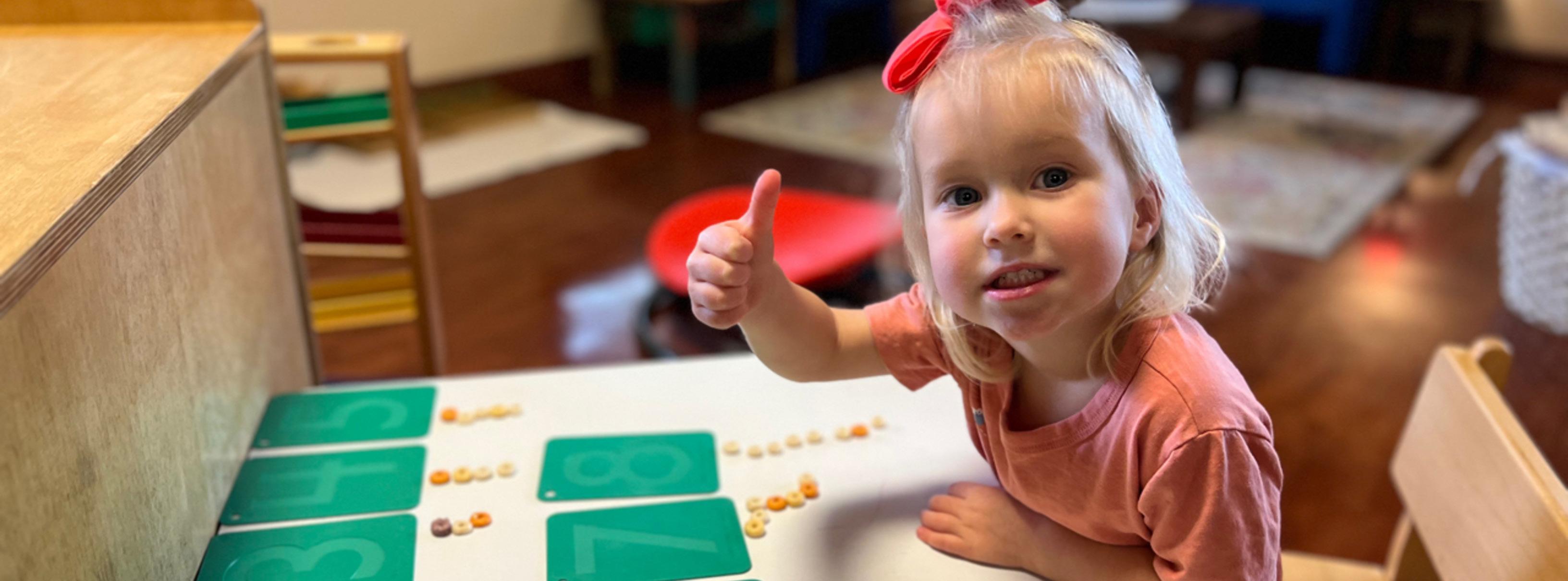
2 minute read
I Did it Myself!
Sarah Bosworth, Toddler 2 Teacher
Stage 1: Infancy 0-6 years
• The Absorbent Mind
• Physical independence
Stage 2: Childhood 6-12 years
• Right vs. wrong
• Caring for others
Stage 3: Adolescence 12-18 years
• Socialization
Stage 4: Maturity 1824 years
• Contributor to society
• How can I make a difference?
“The child’s development follows a path of successive stages of independence, and our knowledge of this must guide us in our behaviour towards him. We have to help the child to act, will, and think for himself. This is the art of serving the spirit, an art which can be practised to perfection only when working among children.”
- Maria Montessori
Dr. Maria Montessori spent a lot of time observing children to understand how they learn and develop. Through her observations, Montessori discovered four stages of development that range from birth to the age of twenty-four. Each stage has a time of development where the individual will acquire new skills and a time of consolidation where the individual will apply those skills with confidence. These stages are known as the Four Planes of Development.
Infancy, the first stage from birth to age six, is known as the stage of The Absorbent Mind. This refers to the child’s innate ability to absorb through their senses, like a sponge, everything from their environment needed to adapt to the culture they were born into, as well as to develop their own identity within that culture. In this plane of development, children have a strong sense of independence. You may hear, “I try!” often. As adults we tend to step in too soon to save time or because we think we can do better. As Montessorians, observation is one of our biggest jobs. We observe our students in everything they do. In doing so, we learn to wait instead of immediately stepping in. The next time you see your child struggling with a task, watch and wait. Say nothing. If your child is successful, celebrate by saying, “you did it!” or even better, “how do you feel?” These statements and questions put the success all on the child, instilling an even deeper sense of success and independence - “I did this by myself.” If you feel the need to step in, try saying, “I’m here if you need me,” instead of, “do you need help?” or “let me help you.” This lets the child know that you are available, while also encouraging them to try on their own. At this stage, there are many sensitive periods (periods of time in which learning a skill or concept will come most naturally) including, but not limited to, language, small objects, sense of order, toilet learning, movement, and music. This stage lays the foundation in which new skills are built upon.
Each plane has stages of development and consolidation. Individuals in each stage go through sensitive periods and have various needs. As parents and teachers, we can do our best to become familiar with each plane of development and provide an environment that will help our children become the best version of themselves.








